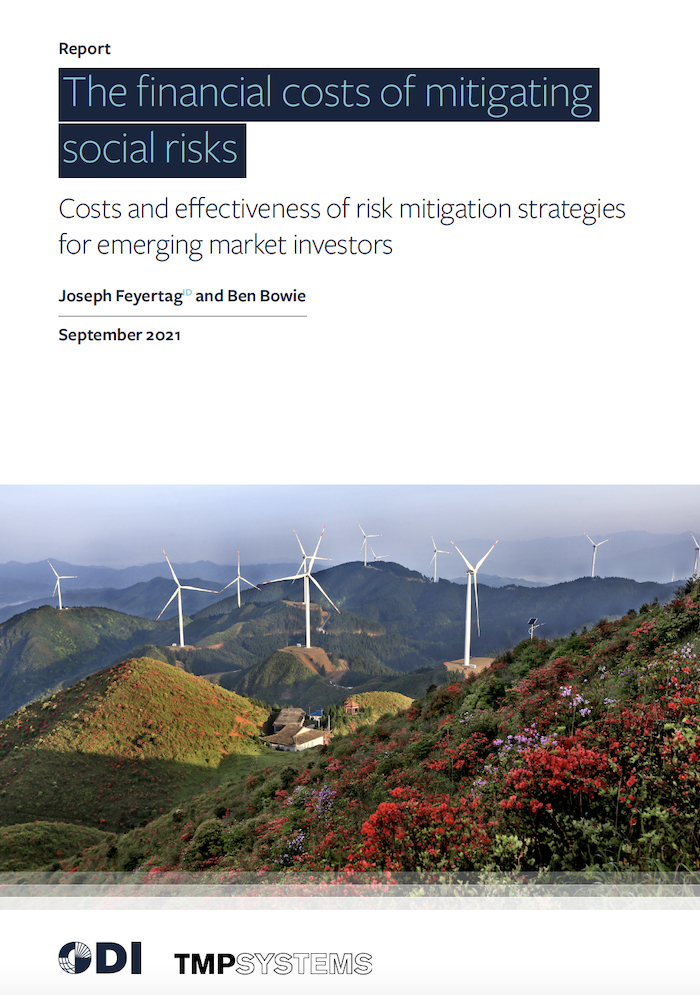Resource information
This report assesses the costs and effectiveness of responsible investment practices in emerging market contexts. Its results make the business case for investments in social risk mitigation and avoidance practices. Such practices include community engagement efforts, impact assessments and the establishment of grievance resolution mechanisms. Implemented correctly, responsible investment practices engender confidence and trust between investors and local communities, which secures social buy-in and mitigates the financial risks associated with disputes.
To assess the costs of these practices, we analysed financial data from 137 development finance institution (DFI) investments in emerging markets. We consulted a further 85 agricultural investors in sub-Saharan Africa to further establish the effectiveness of those investments. Our results suggest the following:
The costs of implementing social risk mitigation activities in emerging markets are around 2% of project costs (roughly 10% of the net present value (NPV) of investments). Across the portfolio of projects analysed, this represents an average expenditure of around $10 million per project.
This compares to potential financial damages of $25–40 million per project, equivalent to 24–37% of the NPV of investments.
Investors consider social dialogue processes to be the most effective risk mitigation strategy. Over 90% of investors in sub-Saharan Africa considered social dialogue to be a highly effective way of identifying community needs, targeting them and achieving social license to operate.
There is room for improving the effectiveness and reducing the costs of social risk mitigation. Some complex and rigid procedures, such as those typically associated with environmental and social impact assessments or dispute resolution mechanisms, were perceived as cost-inefficient and ineffective by 12–15% of agricultural investors.
We conclude that investments in social risk mitigation and avoidance make clear financial sense. By setting aside at least 2% of the initial NPV of an investment, investors can avoid financial risks that, conservatively, are up to four times the cost of risk mitigation procedures (Figure 1).
To mitigate social risks in the broader emerging market investment landscape, social dialogue processes should be integrated in national and international investment approval procedures and disclosure requirements. Governments interested in mitigating the social risks of both domestic and international investors should introduce requirements for spending on stakeholder mapping, broad-based community consultation and needs-based community development programmes. As a rule of thumb, they could ask investors to set aside a minimum of 2% of project expenditure on community engagement activities. Voluntary environmental, social and governance (ESG) standards, such as the Global Reporting Initiative’s (GRI’s) topic-specific disclosure requirements, offer frameworks for monitoring such efforts and thereby ensuring social risks are mitigated. This would lead to better business performance, a better investment environment and better local impact.



